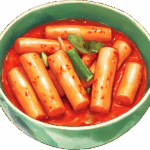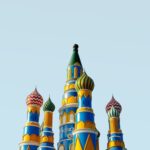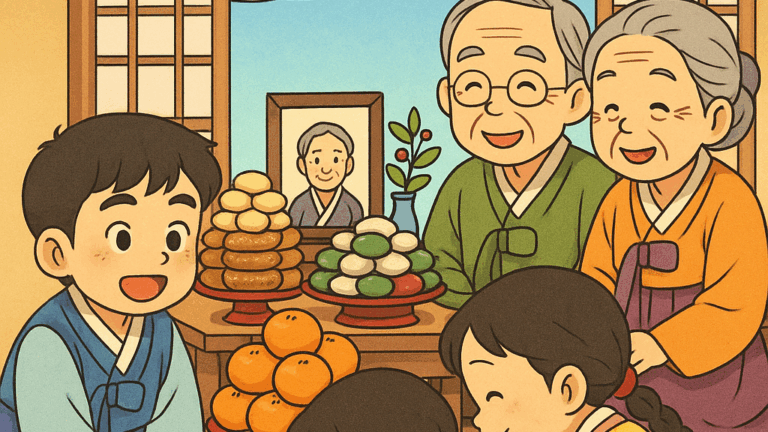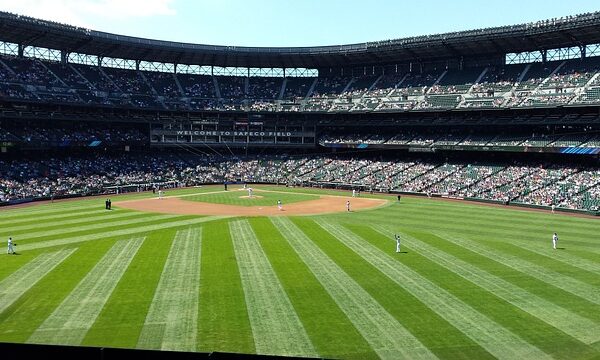🎎 Traditional Korean Holidays Explained: A Guide for Foreign Residents
Living in South Korea 🇰🇷 and curious about the country’s biggest holidays? Whether you’re new here or have been living in Korea for years, understanding traditional Korean holidays can help you better connect with local culture, avoid travel headaches, and even join in on the celebrations! 🎉
📅 Overview: Major Traditional Korean Holidays
Korea observes both solar (Gregorian) and lunar calendars, and many traditional holidays follow the lunar calendar, which means dates change every year.
Here are the 3 most important traditional holidays:
| Holiday | Usual Timing | Korean Name | Duration |
|---|---|---|---|
| Lunar New Year | Jan–Feb (Lunar calendar) | 설날 (Seollal) | 3 days |
| Harvest Festival | Sep–Oct (Lunar calendar) | 추석 (Chuseok) | 3 days |
| Hansik & Dano | April/June | 한식 & 단오 | 1 day each |
🎊 1. 설날 (Seollal) – Korean Lunar New Year
🗓️ When?
Falls between late January and mid-February depending on the lunar calendar. Usually a 3-day holiday (day before, day of, and day after).
🎈 What Happens?
- Families gather for ancestral rites (차례 / charye).
- Everyone wears hanbok (traditional clothes) and eats 떡국 (rice cake soup) to “gain a year” of age.
- Younger family members perform 세배 (sebae) – a deep bow to elders, who in return offer 세뱃돈 (money envelopes).
- Traditional games like 윷놀이 (Yutnori) are played.
🚌 Travel Tip:
- Highways, buses, and trains are extremely crowded! 🚗🚉
- Book tickets weeks in advance if traveling.
- Seoul becomes quieter as many people visit hometowns.
🌕 2. 추석 (Chuseok) – Korean Harvest Festival
🗓️ When?
Usually in September or early October (15th day of the 8th lunar month).
🥟 What Happens?
- Often called “Korean Thanksgiving.”
- Families pay respect to ancestors with food and rituals.
- Special foods like 송편 (songpyeon) – rice cakes filled with sweet fillings – are made.
- Traditional games, music (농악), and dancing (강강술래) are sometimes performed.
🛣️ Travel Tip:
- Similar to Seollal, it’s one of the busiest travel times of the year.
- If you want to explore Seoul without crowds, Chuseok is a great time—most people leave the city.
📸 Fun Fact:
- Chuseok is a popular time for wearing hanbok and taking family photos.
🪷 3. 한식 (Hansik) & 단오 (Dano)
🌸 한식 (Hansik)
- Celebrated 105 days after the winter solstice.
- A day to visit ancestors’ graves and perform memorial services.
- Traditionally, people ate cold food as no fire was used on this day.
☀️ 단오 (Dano)
- Occurs around June 5 (5th day of the 5th lunar month).
- Celebrates the arrival of summer.
- Traditional customs include washing hair with iris-infused water for good luck and health.
🧳 Other Notable (Non-Traditional) Public Holidays
While not traditional, these are important holidays where businesses and schools may close:
| Holiday | Date | Notes |
|---|---|---|
| Independence Movement Day | March 1 | 🇰🇷 Marks Korea’s resistance to Japanese rule |
| Children’s Day | May 5 | 🎈 For families and kids |
| Liberation Day | August 15 | ✊ End of Japanese occupation |
| National Foundation Day | October 3 | 🎌 Founding of the Korean nation |
| Hangeul Day | October 9 | 🅰️ Celebration of the Korean alphabet |
🚍 Transportation Advice During Holidays
- KTX & Express Buses: Book 2–4 weeks in advance.
- Flights: Domestic flights sell out early.
- Car Rentals: Prices rise steeply during holidays.
- Apps to use:
- 코레일톡 (Korail) for train tickets 🚅
- 고속버스모바일 (Express Bus) for intercity buses 🚌
- 카카오맵 / 네이버지도 for navigation and traffic updates 📱
🛒 What’s Closed and What’s Open?
| Type | Status During Major Holidays |
|---|---|
| Government Offices | Closed 🏛️ |
| Banks | Closed 🏦 |
| Malls/Shops | Open or partially open 🛍️ |
| Museums & Palaces | Often open & free 🎟️ |
| Restaurants | Some closed, especially in small towns 🍜 |
🧠 Cultural Etiquette Tips
- Be respectful of family time during Seollal and Chuseok.
- Many Koreans prepare gifts for their parents or in-laws (e.g., fruit sets, health supplements).
- Don’t be surprised if elders ask your age—it’s part of the holiday greeting culture.
- Expect traffic and plan accordingly!
📝 Summary
Korean holidays are deeply rooted in tradition, family, and respect. Whether you’re invited to someone’s home, enjoying Seoul while it’s quiet, or planning a trip away—knowing the customs and calendar helps a lot. Don’t forget to try traditional food, snap a photo in hanbok, and wish people 새해 복 많이 받으세요! (“Wishing you lots of luck in the new year!”) 🎉





